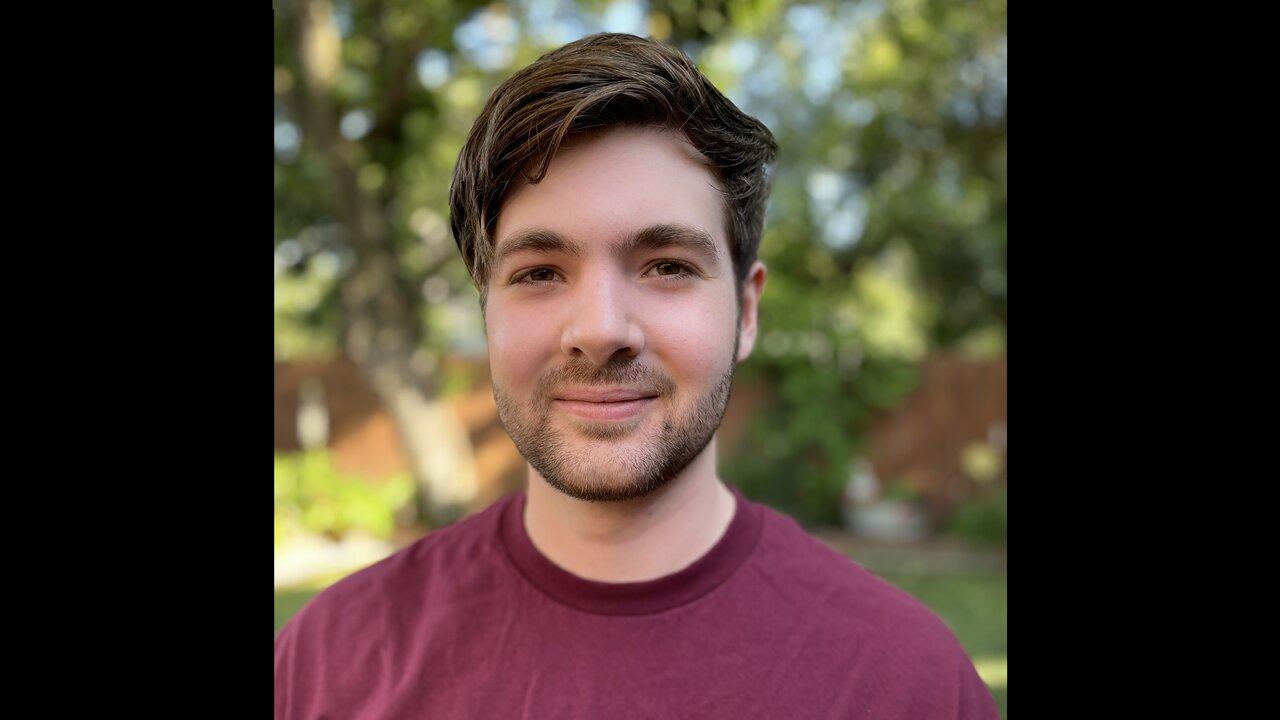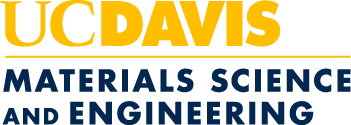
M.Eng Student William Moore Receives DOE SULI Award
Recent materials science and engineering (MSE) M.Eng graduate William Moore became an expert in connections as one of this year’s recipients of a Science Undergraduate Laboratory Internship Program (SULI) Award from the U.S. Department of Energy (DOE). The award encourages undergraduate students and recent graduates to pursue STEM Careers by funding 10-week research experiences at one of 17 DOE labs and facilities.
This summer, Moore worked on fiber optic glasses at Lawrence Livermore National Laboratory (LLNL) while networking with the lab’s scientists and applied the research experience and background in materials structure he gained at UC Davis. He created 3D simulations of chemical doping in fiber optic manufacturing to create better and faster fiber optics and fiber lasers, which is key to improving existing cables, enabling faster internet and facilitating better connections around the world.
“These [cables] are constantly pushing the boundaries of how much data they can shoot through because people are constantly upgrading,” he said. “Improving what’s already there helps people get behind new technology by making it cheaper and easier to move more information without needing more wires.”
Making Connections
As valuable as the internship was for Moore, the connections he made with his professors and the scientists at LLNL was perhaps the most beneficial part. He emphasizes how helpful and well-connected the MSE faculty at UC Davis are and encourages his fellow students to build and leverage these connections and remain persistent when pursuing opportunities and to not get easily discouraged.
“I’ve made really good connections with my professors and the faculty at LLNL, and it really paid off because not only did I get to learn a lot about these people, I also made really good personal connections,” he said. “I can’t say how much I appreciate all the professors and how much it’s helped me throughout this entire process.”
Moore graduated with a B.S. in materials science and engineering in 2020 and stayed on to earn his M.Eng. in 2021. After learning online for four straight quarters, he was itching to get hands-on work experience. He reached out to one of his favorite professors, Yayoi Takamura, who helped him land an interview at Sandia and get in touch with researchers at LLNL. It was LLNL that made the biggest impression.
“Everyone I met was very motivated, engaged and passionate about what they were doing and passionate to tell people what they’re doing,” he said. “Talking with the people at LLNL, it felt like a team that I would be really excited to work with.”
He specifically credits Dr. Rose McCallen, a group leader in applied mathematics at the lab and a UC Davis alumna, for helping the most. McCallen spread his name and resume and helped him get in touch with almost a dozen of the lab’s scientists so he could learn about their jobs, look for opportunities and get help as he applied for the SULI program.
He also thanks distinguished professor Subhash Risbud, who helped him learn how to calmly and methodically network, while helping Moore meet more LLNL scientists by using his own connections. He also hopes to keep in touch with assistant professor Jeremy Mason, who taught him the materials structure and cracking concepts he used in the internship, and potentially help Mason facilitate future collaborations with the lab.
Moore’s internship lasted ten weeks throughout the summer, where he learned the intricacies of fiber optic lasers, as well as how to network professionally. He now works at the LLNL National Ignition Facility’s fiber optic manufacturing facilities, where he turns glass into “fiber lasers,” which use fiber optics to generate lasers. These fiber lasers can be used for fusion reactor experiments, as well as other applications.
